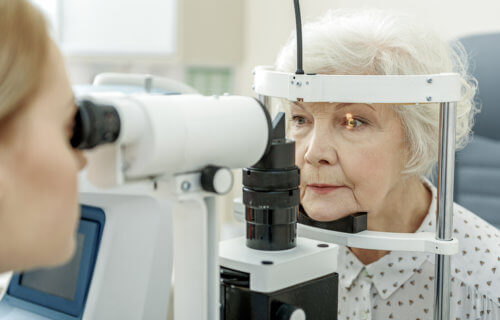ADELAIDE, Australia — Millions of older adults are potentially at risk of receiving a misdiagnosis of cognitive decline when all they really need is a new pair of glasses.
Researchers from the University of South Australia report that various cognitive tests mainly relying on vision-dependent tasks may be “skewing results” among up to a quarter of adults over 50 who have undiagnosed visual problems such as cataracts or age-related macular degeneration (AMD).
Age-related macular degeneration is one of the most common causes of vision loss among older people. It doesn’t result in total blindness, but it can severely impede a person’s ability to read, drive, cook, and recognize faces. Importantly, however, it has no influence whatsoever on cognition.
The team at UniSA recruited 24 participants with normal vision to complete two cognitive tests. One involved vision-dependent reactive tasks, while the other was based on verbal fluency.
When participants used a set of goggles to simulate AMD, they scored much lower on the cognitive test involving reaction time tasks in comparison to not wearing the goggles. However, the team did not note any statistical differences during the verbal fluency tests with goggles.
Millions may be at risk of misdiagnosis
UniSA PhD candidate and study leader Anne Macnamara says these findings are a stark reminder that vision problems often unfairly influence the results of cognition tests. Roughly 200 million older adults all over the world live with some form of vision impairment.
“A mistaken score in cognitive tests could have devastating ramifications, leading to unnecessary changes to a person’s living, working, financial or social circumstances,” Macnamara says in a university release. “For example, if a mistaken score contributed to a diagnosis of mild cognitive impairment, it could trigger psychological problems including depression and anxiety.”
“People with AMD are already experiencing multiple issues due to vision loss and an inaccurate cognitive assessment is an additional burden they don’t need.”
Moreover, the research team says reduced vision is underestimated in up to 50 percent of older adults, and routinely understudied across both research and clinical settings. Considering how the average age of the global population continues to grow older, that statistic will likely increase, they say.
“Mobile apps can now be used to overlay simulated visual impairments onto test materials when piloting their stimuli,” Macnamara concludes. “Also, researchers can incorporate quick and simple screening tasks before getting people to do cognitive tests. Verbal tasks should always be part of the assessment, too.”
The findings appear in the journal Scientific Reports.

So all President Biden needs is a new pair of glasses? Take that, Trump MAGA-ts!!